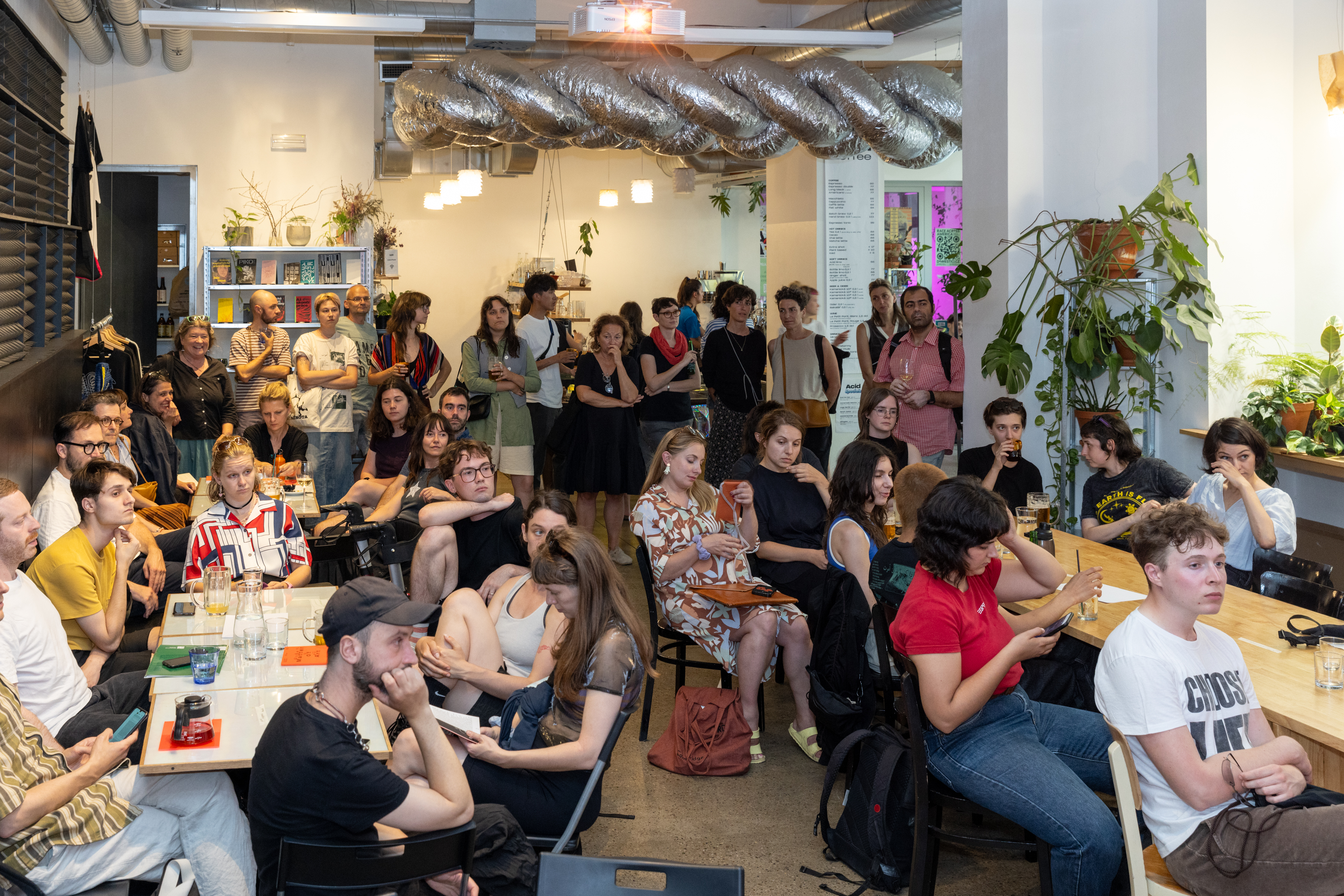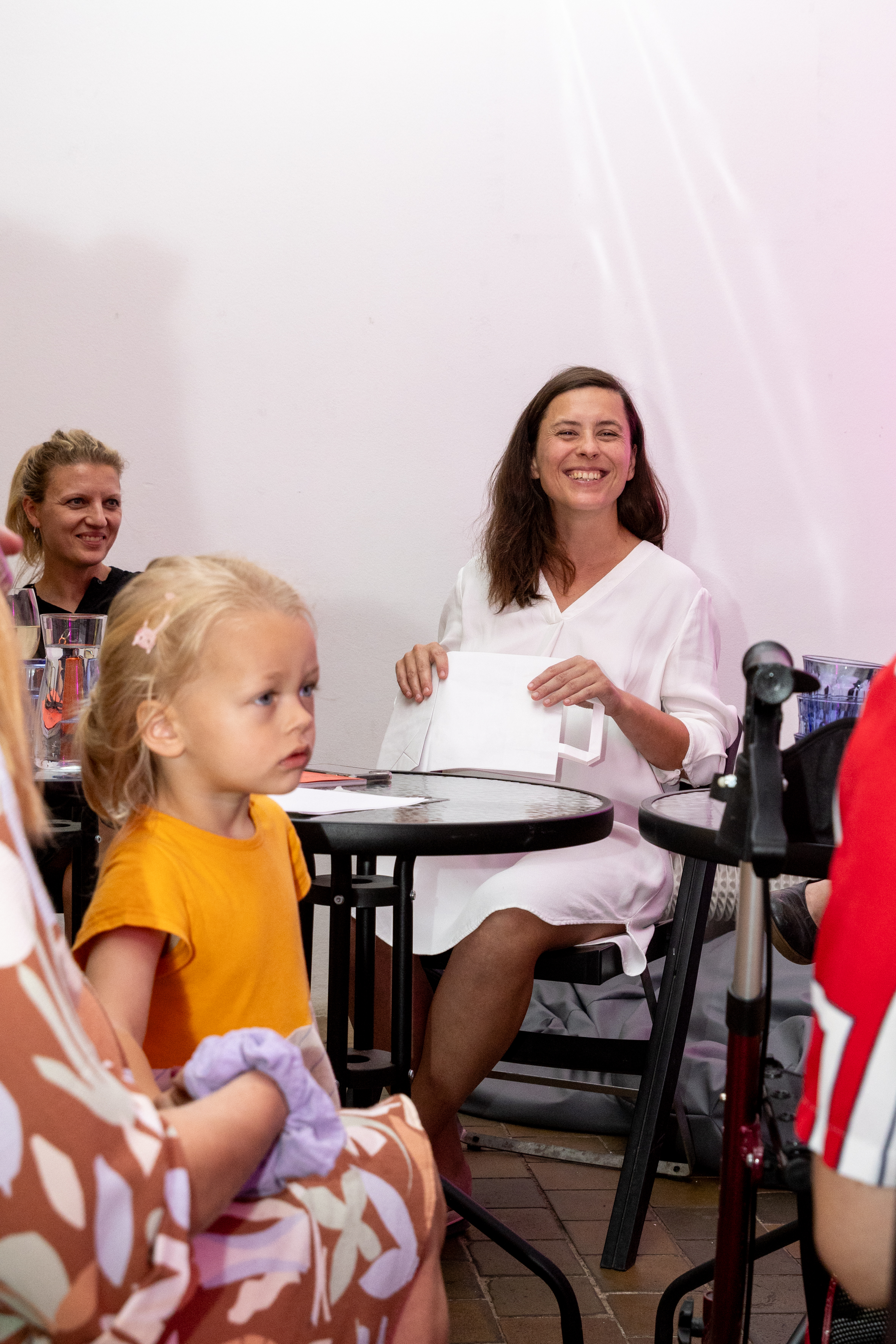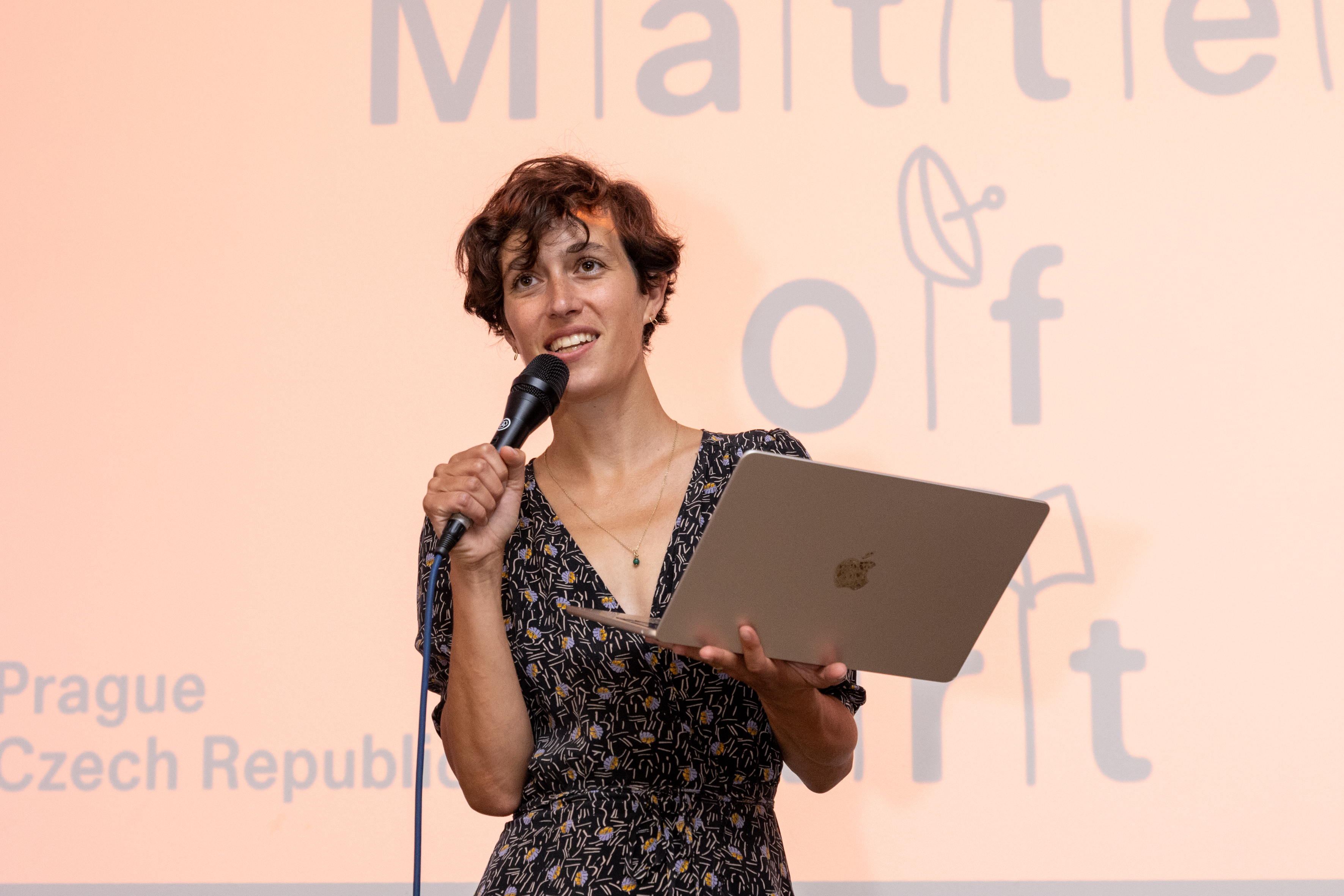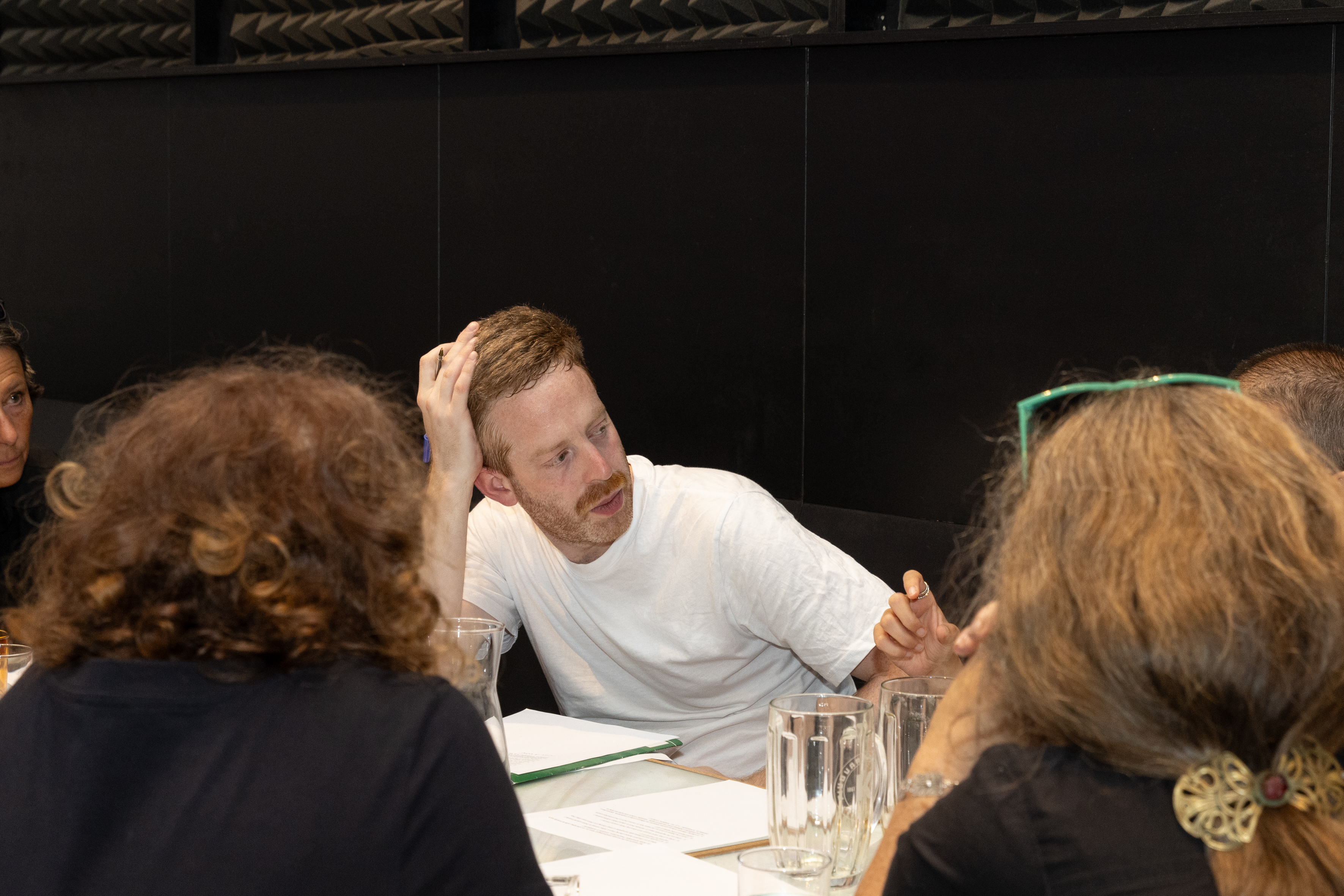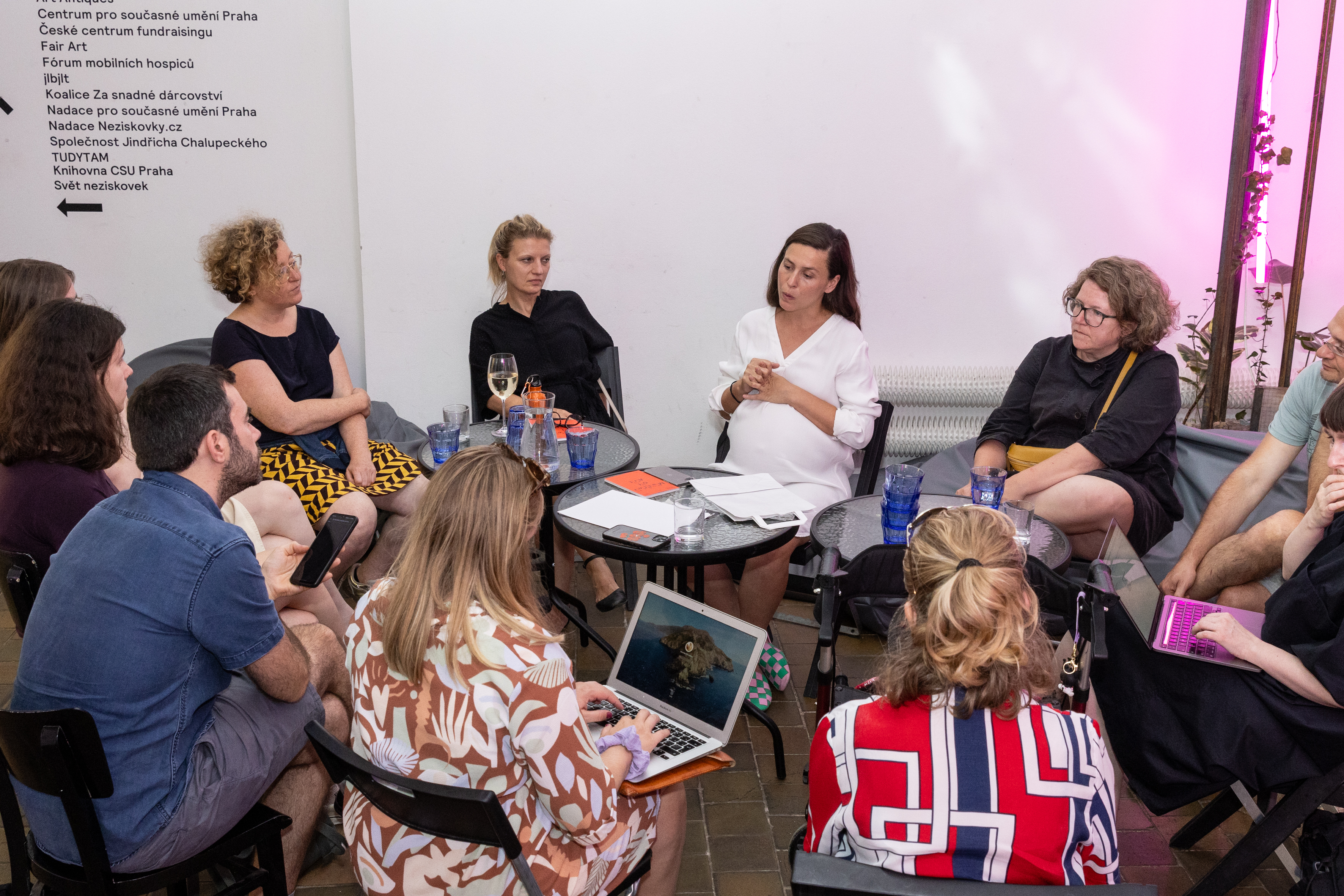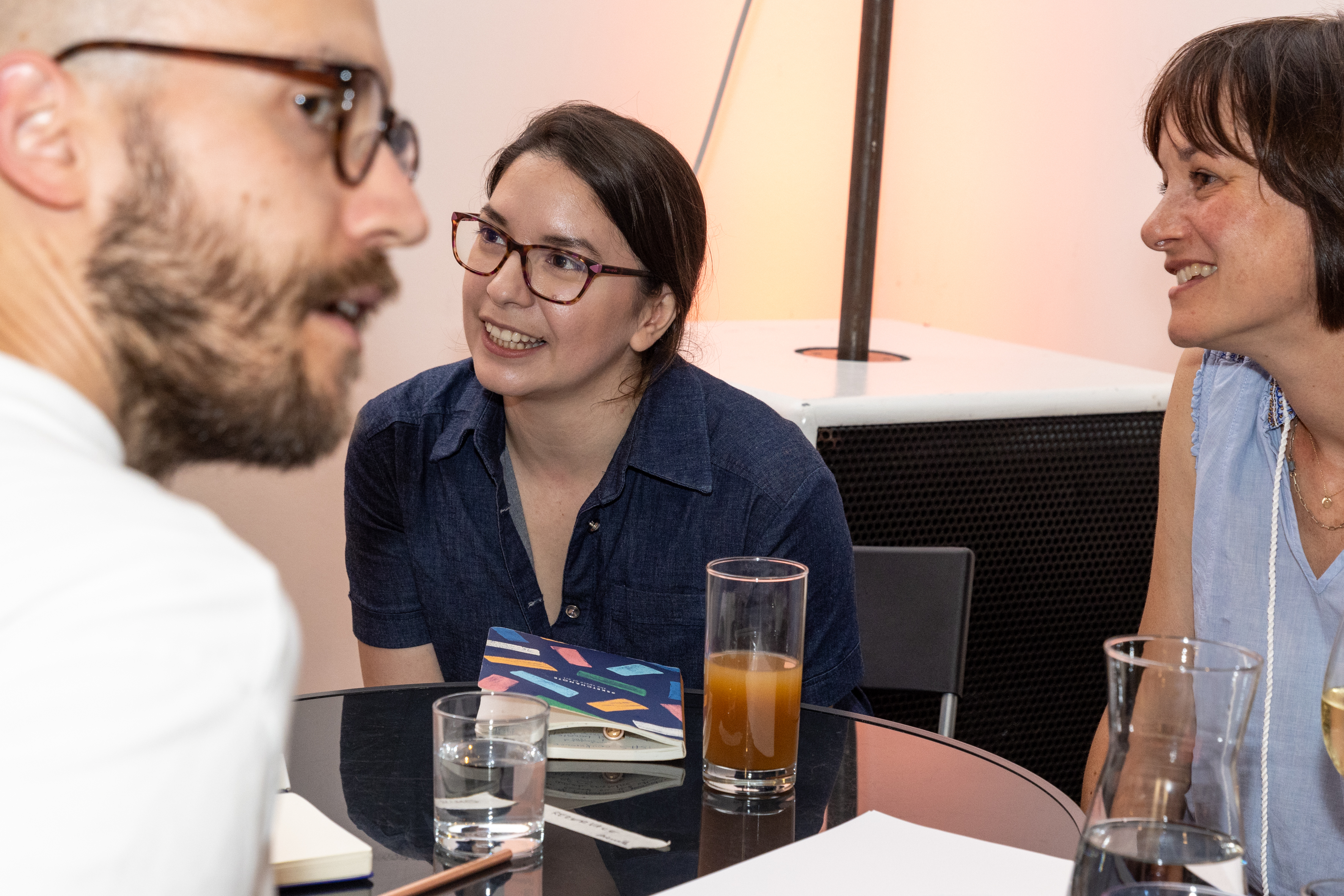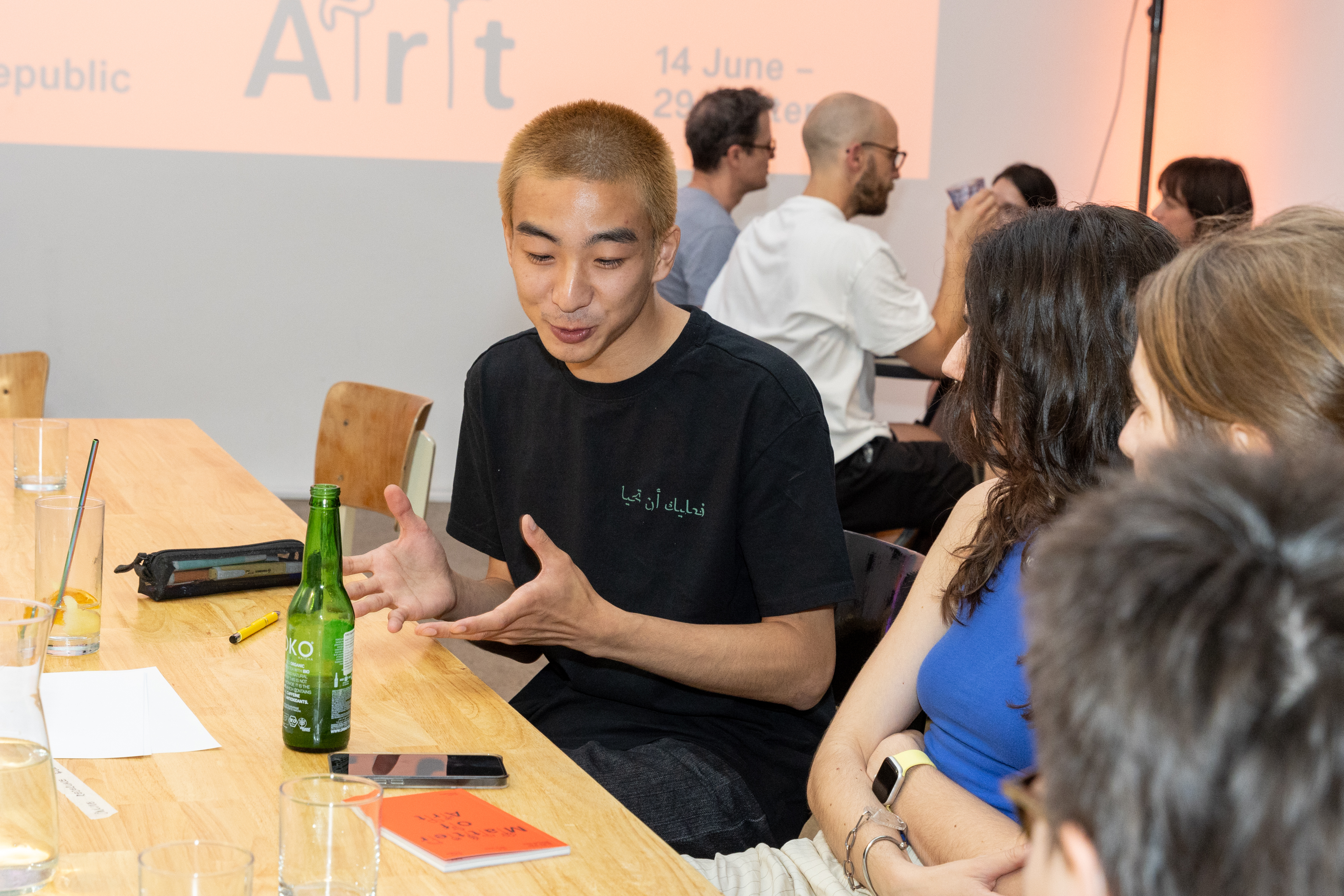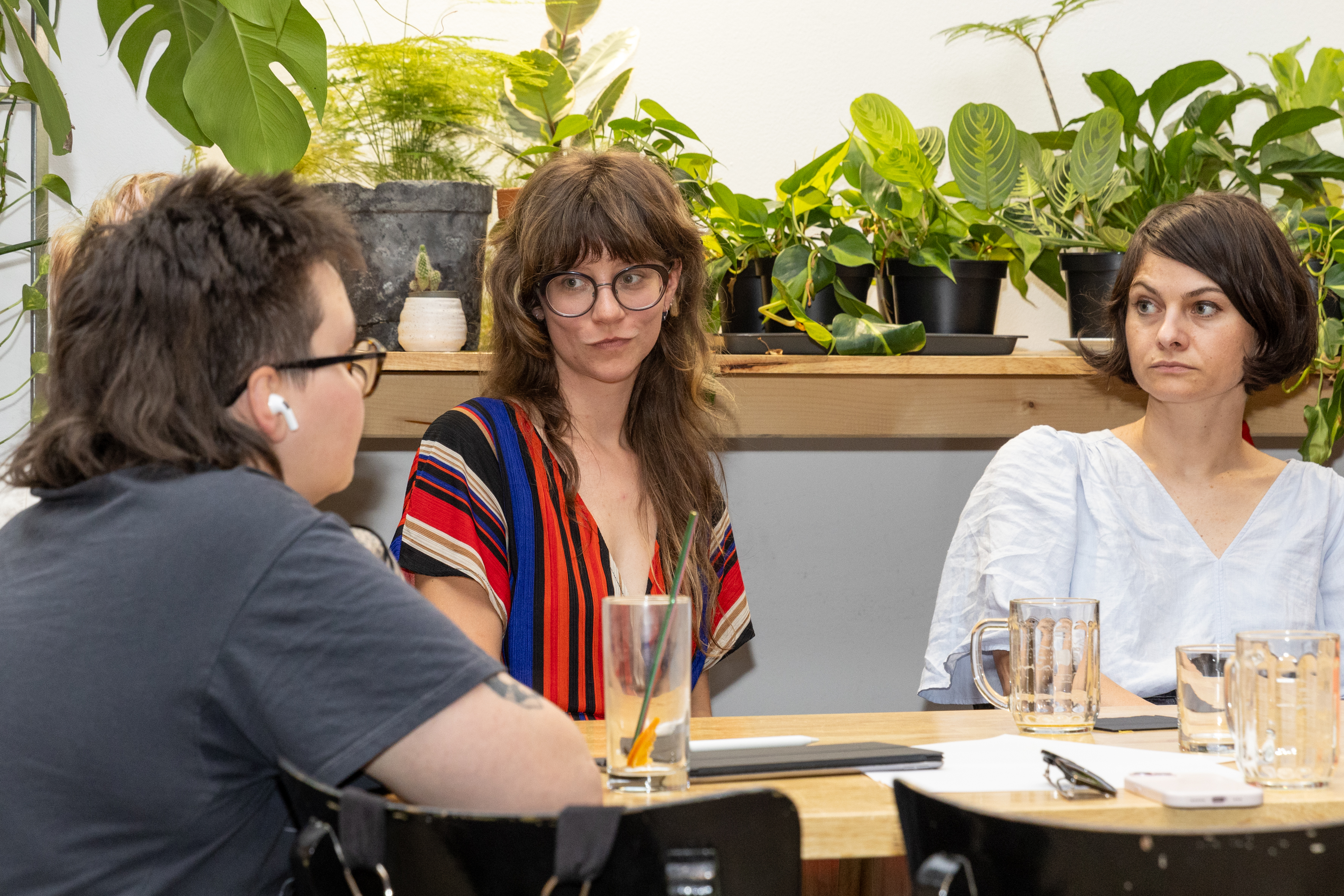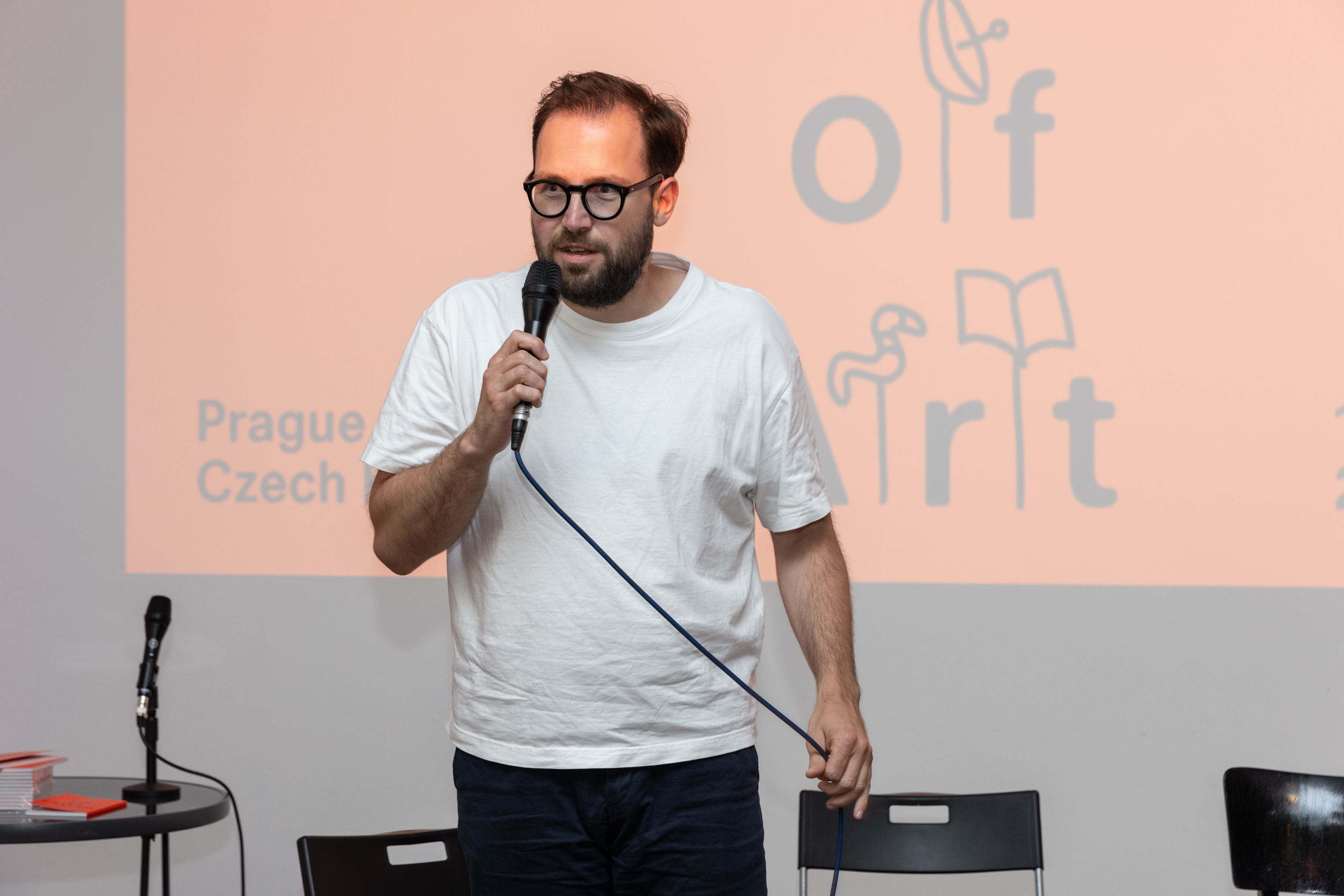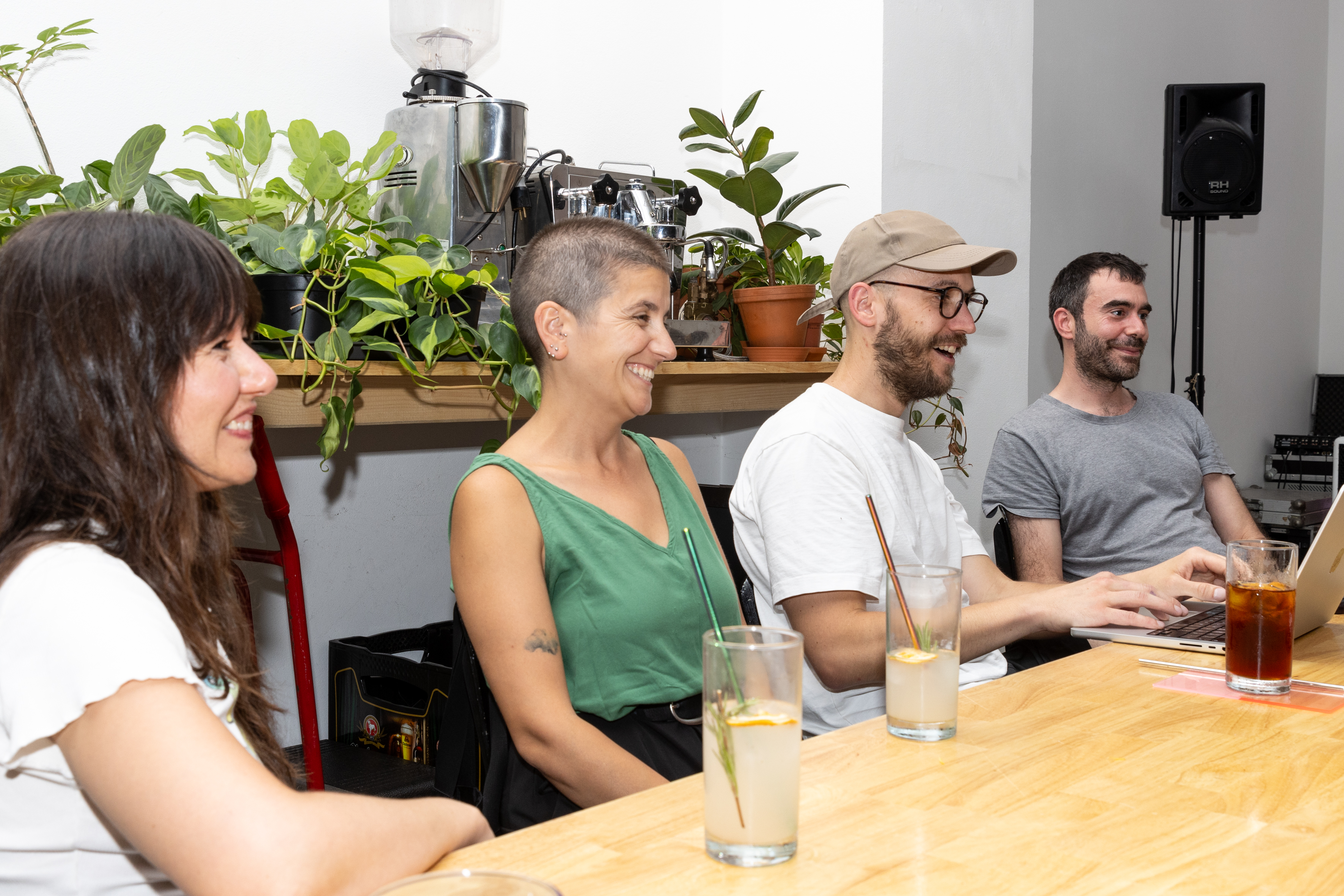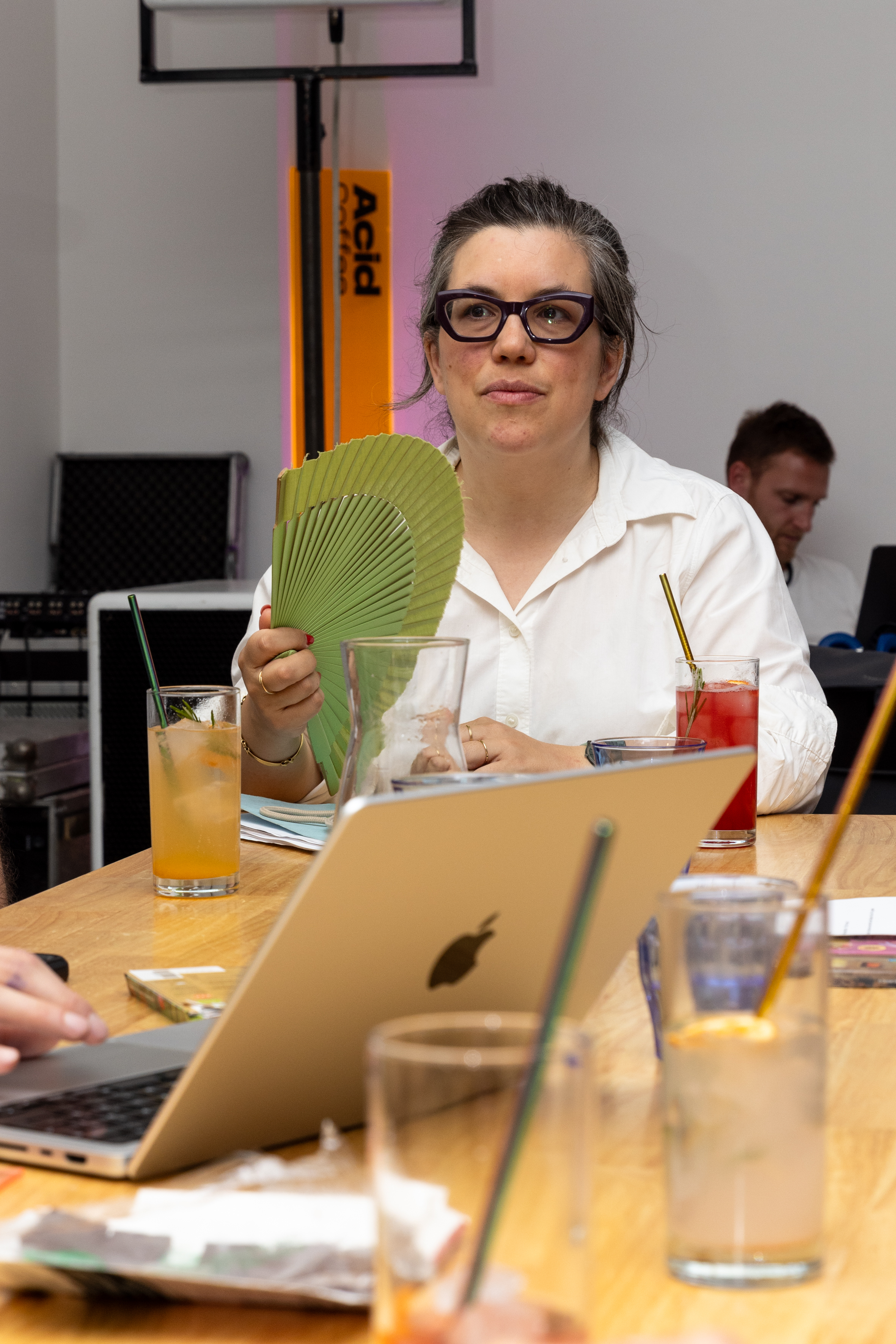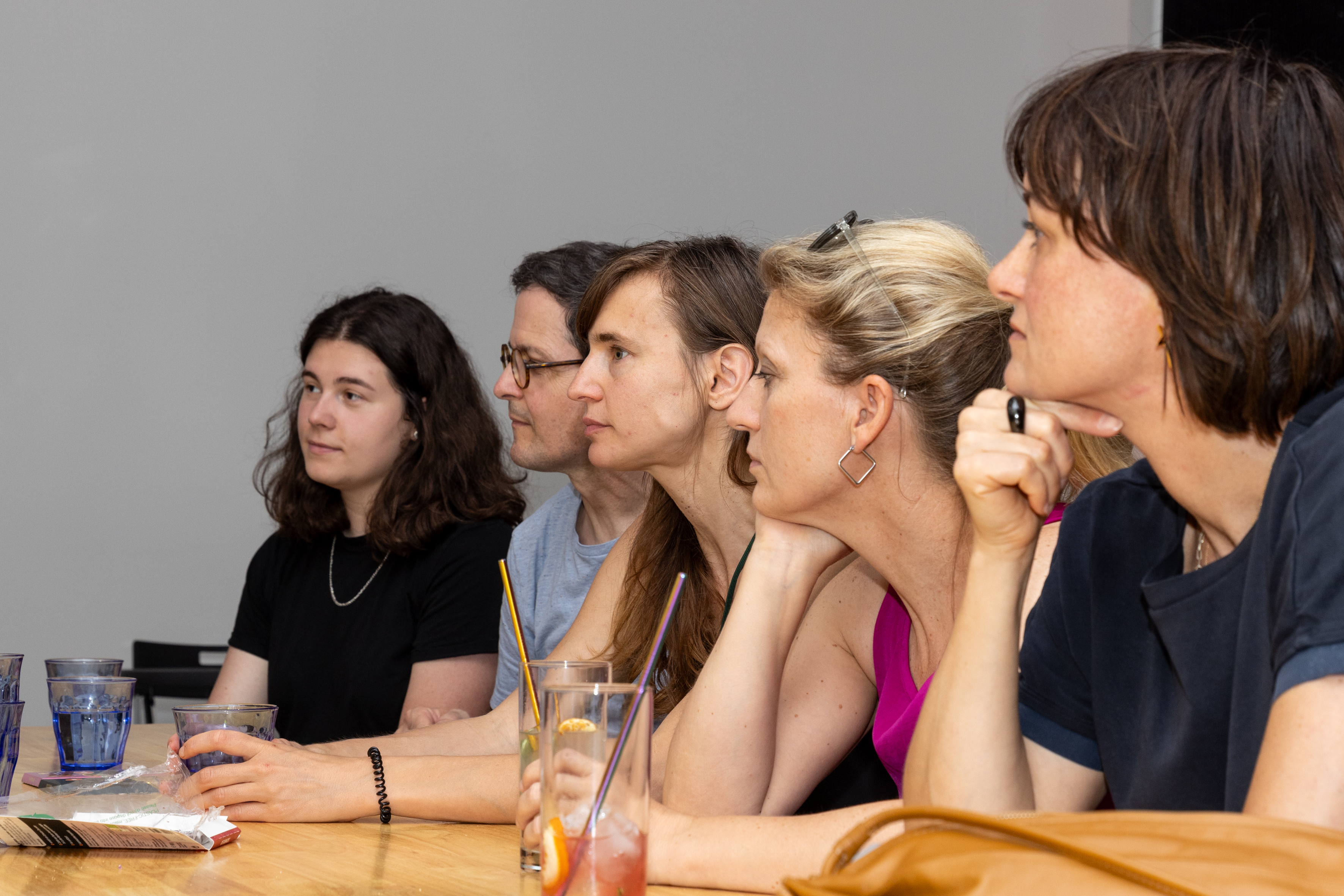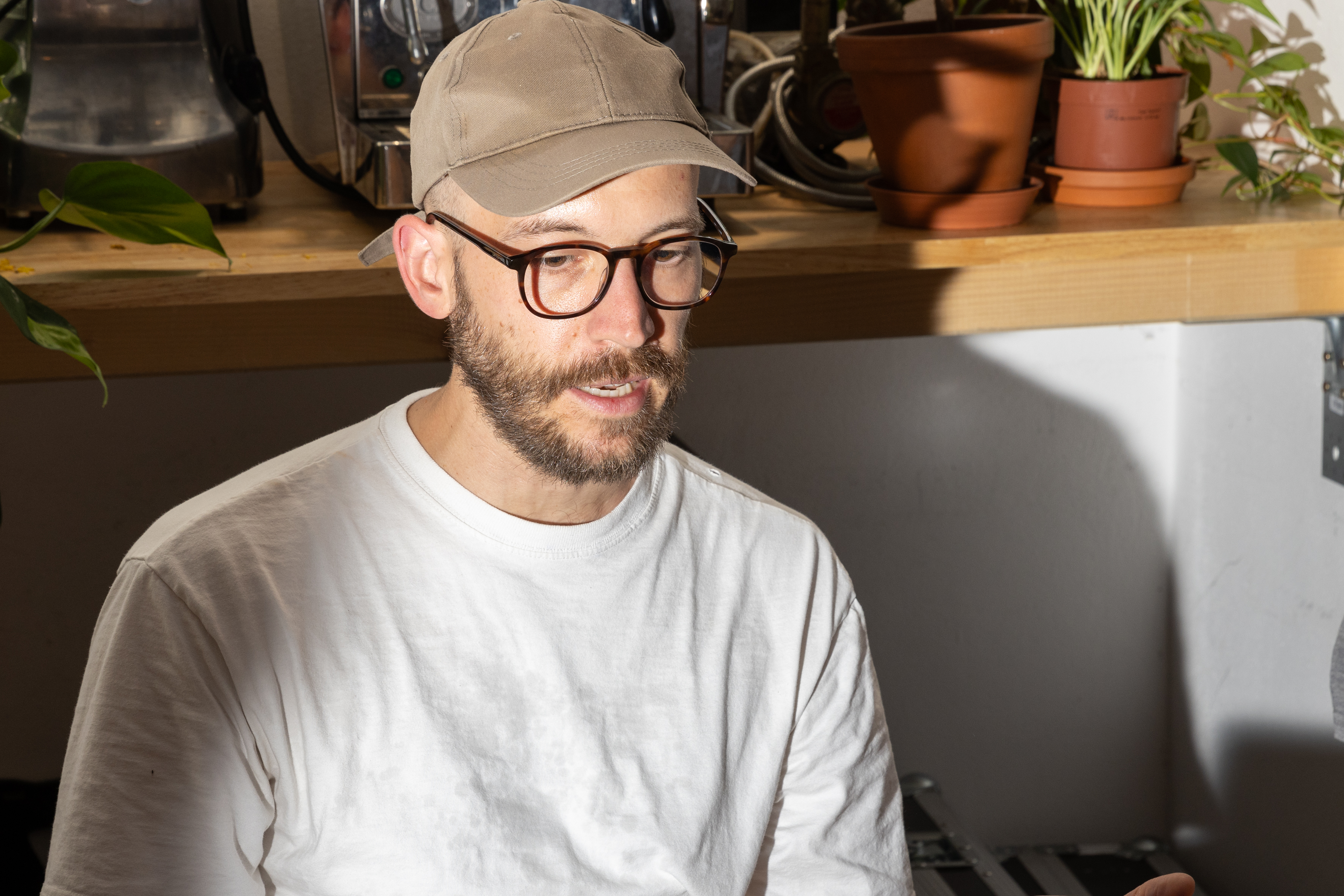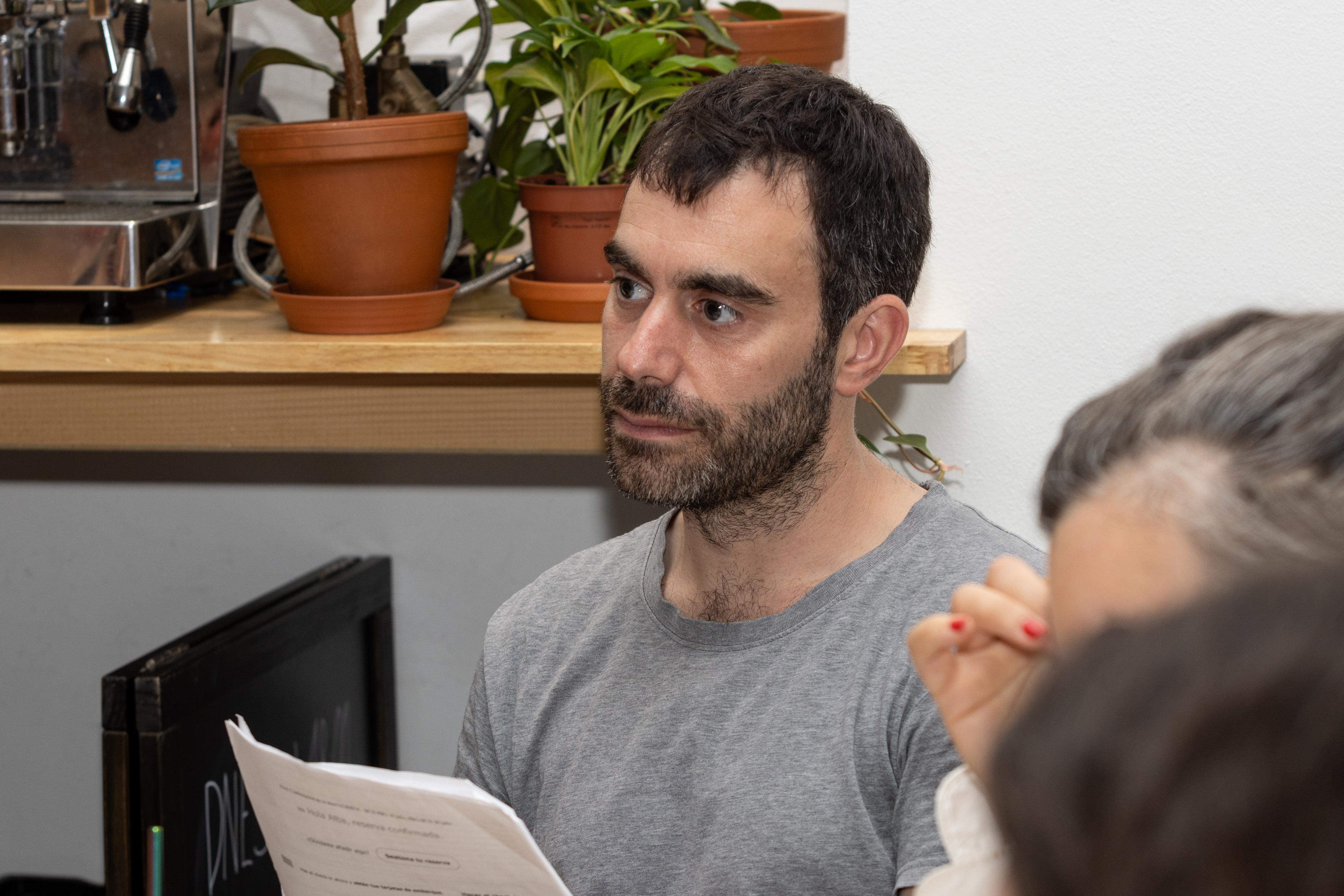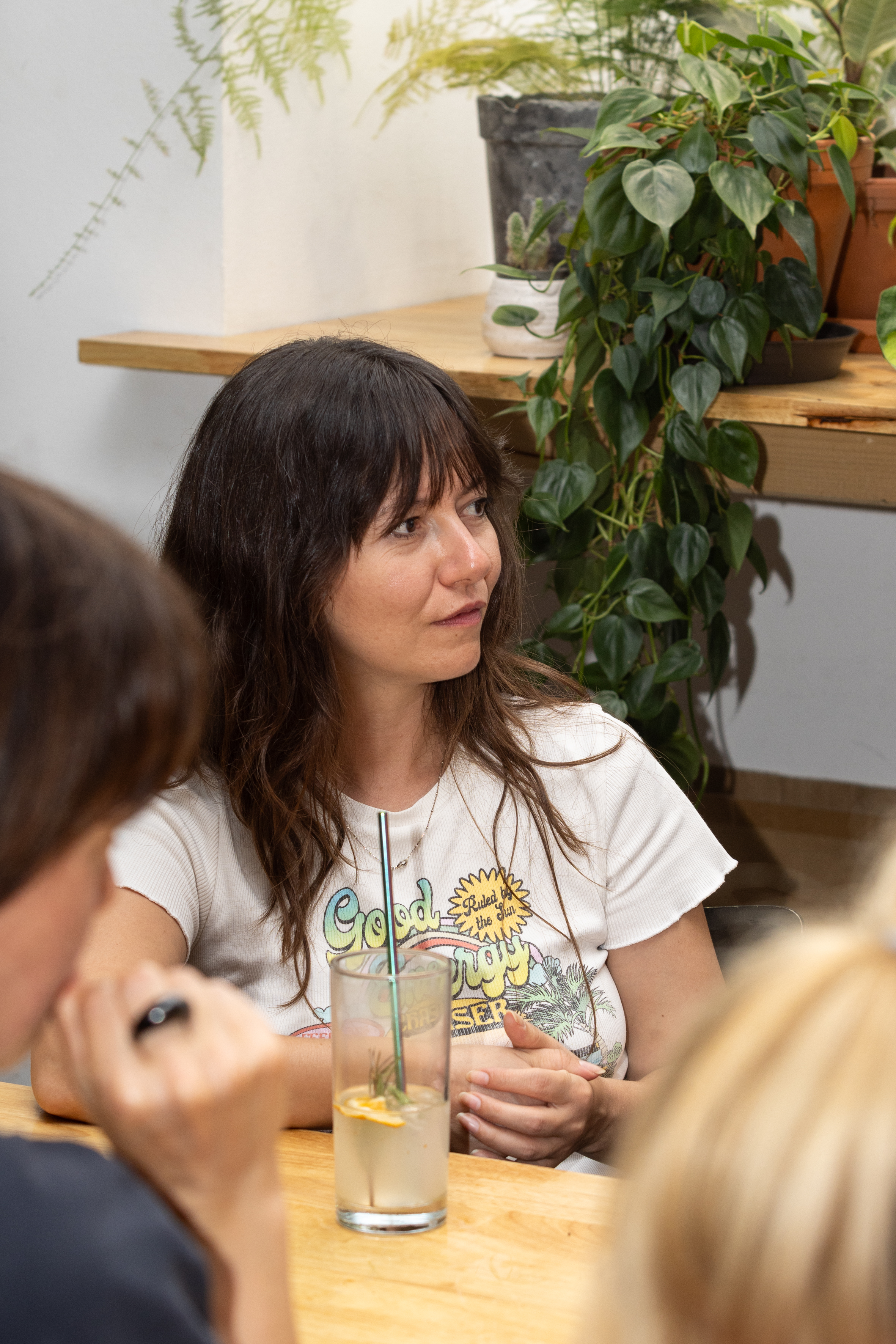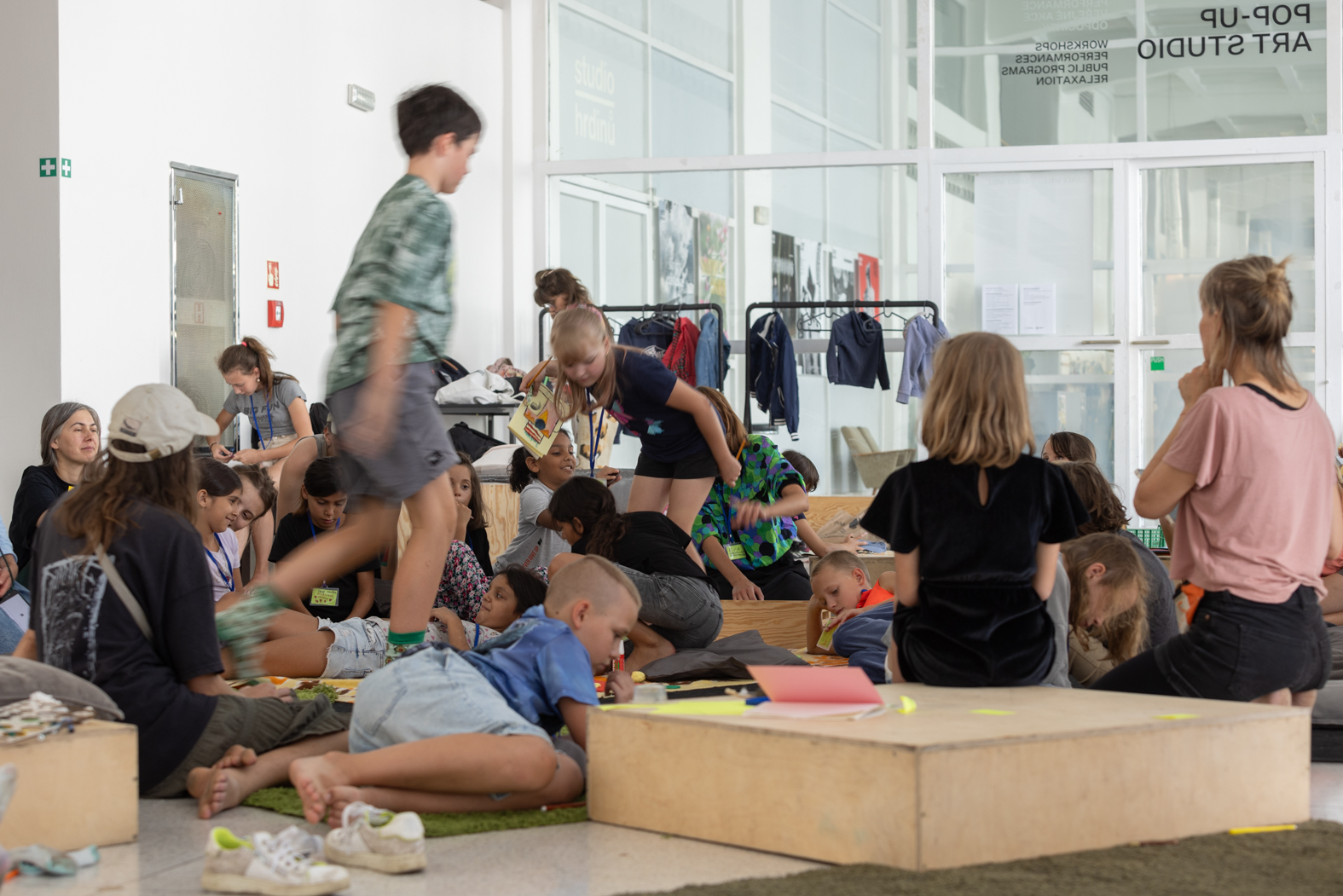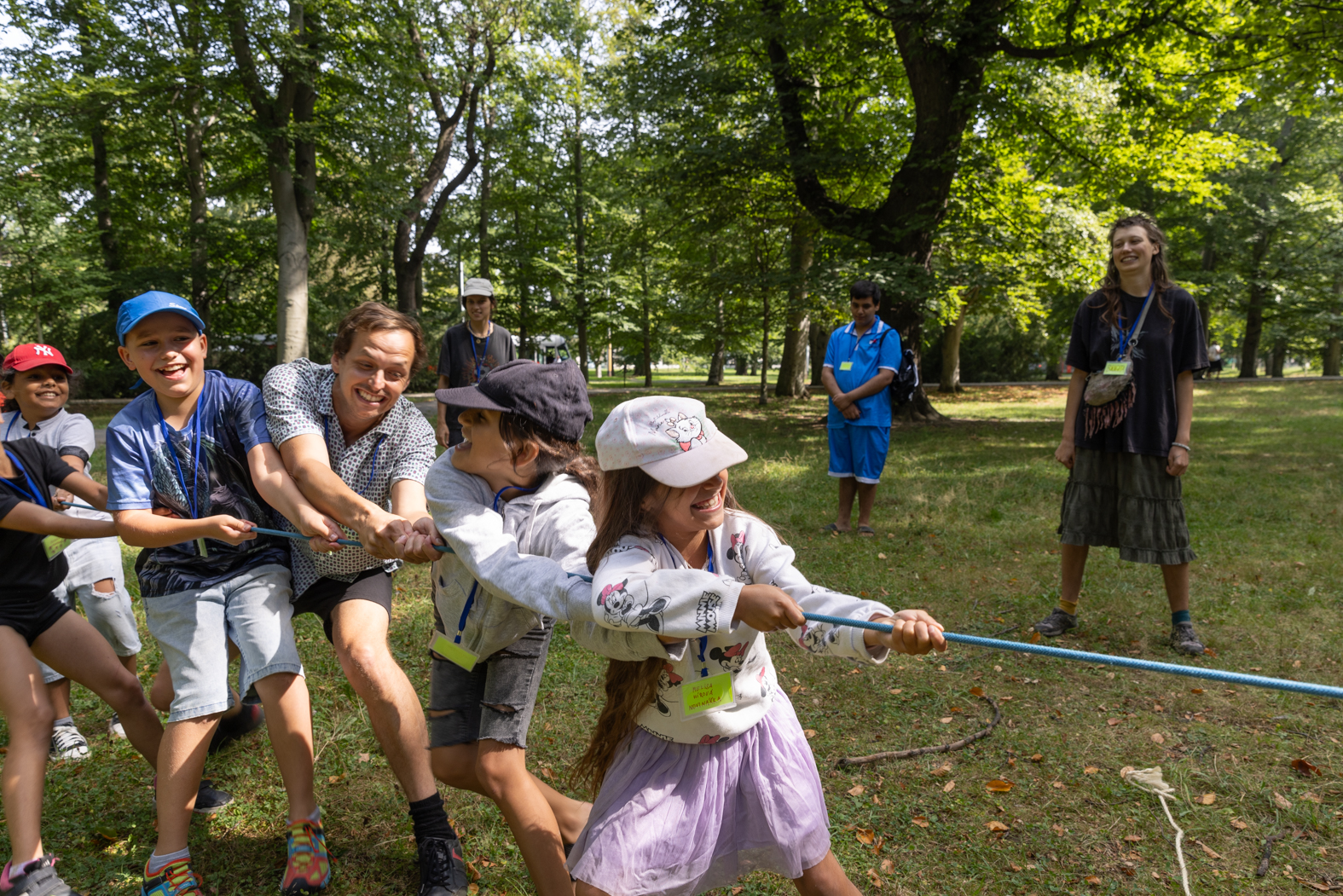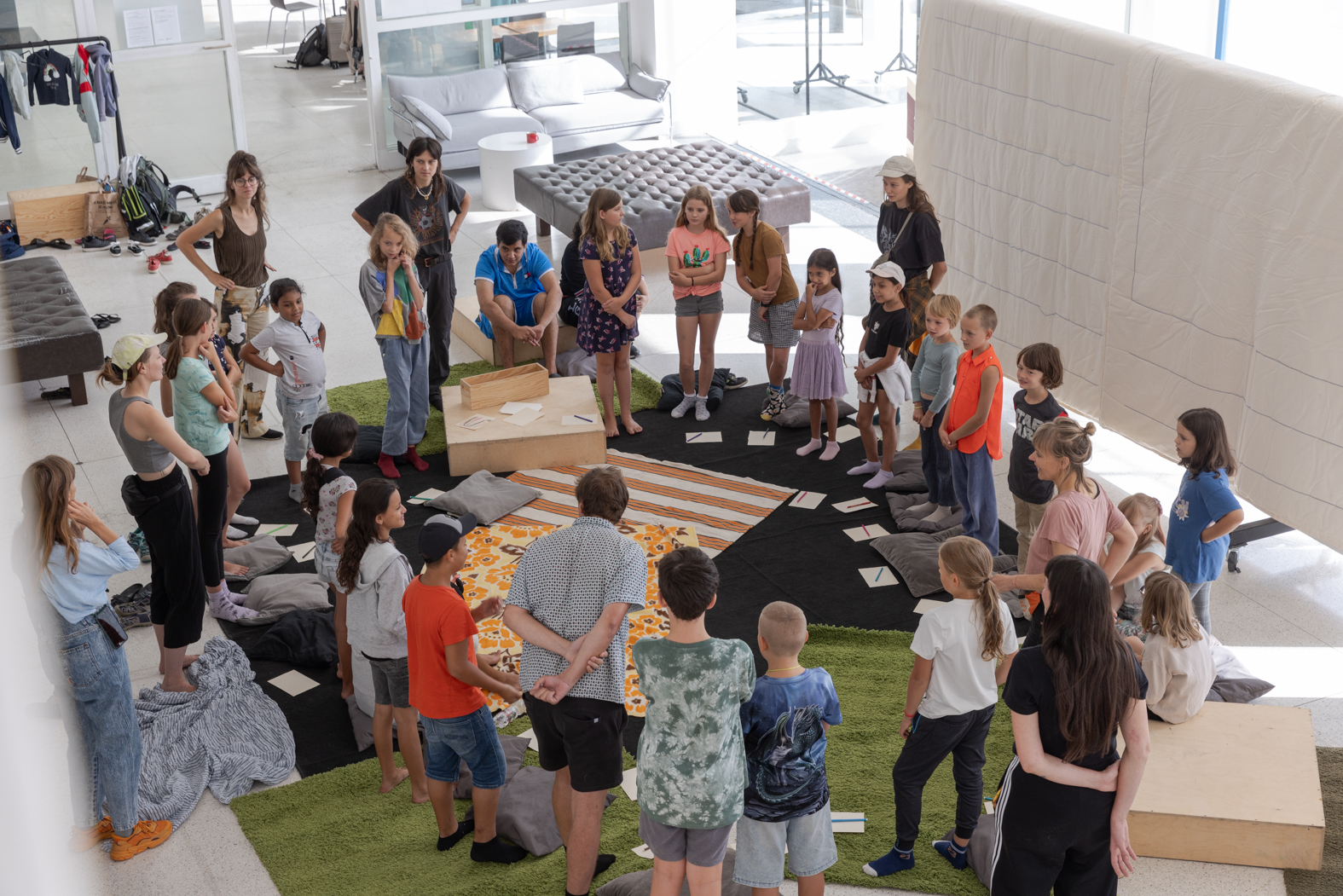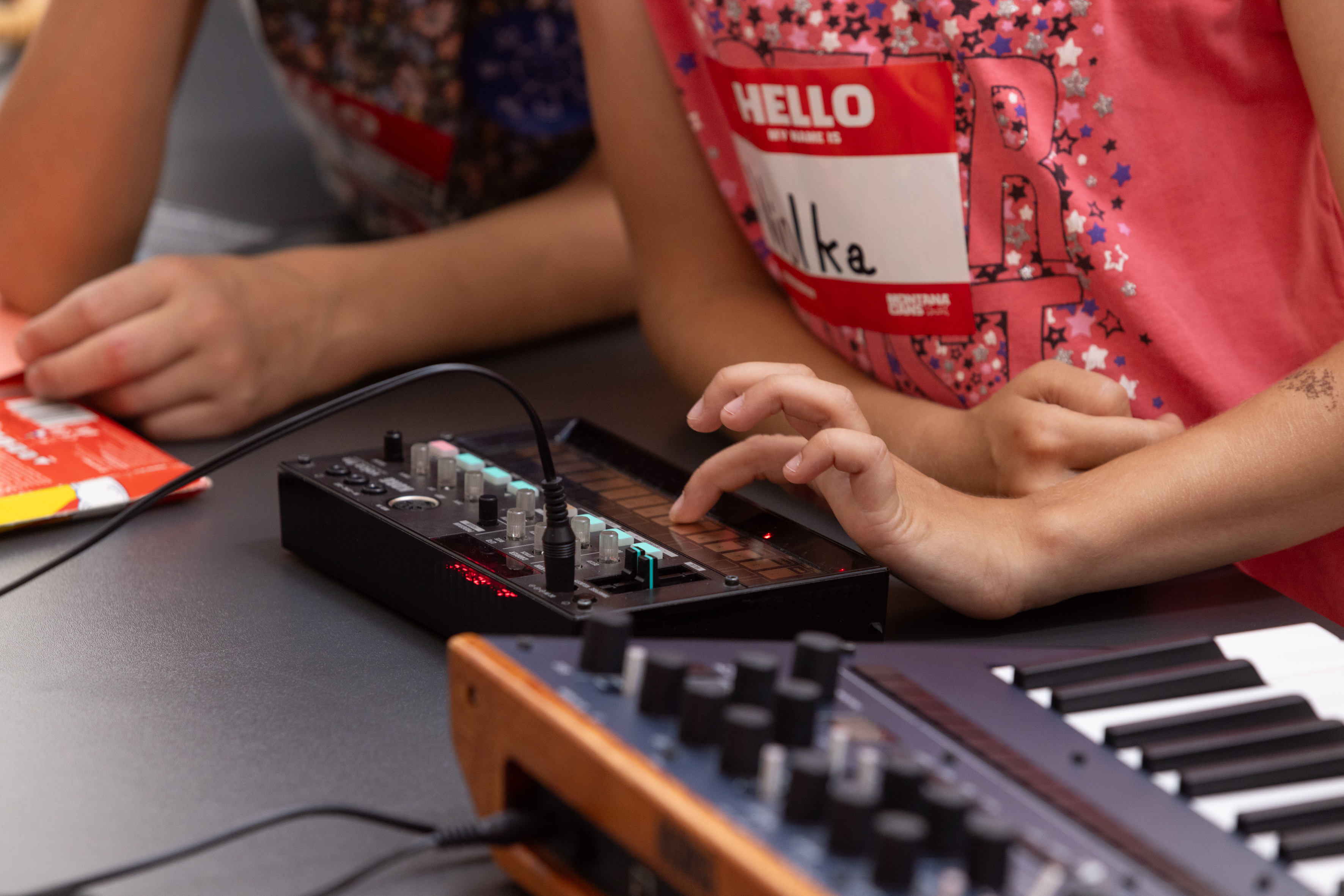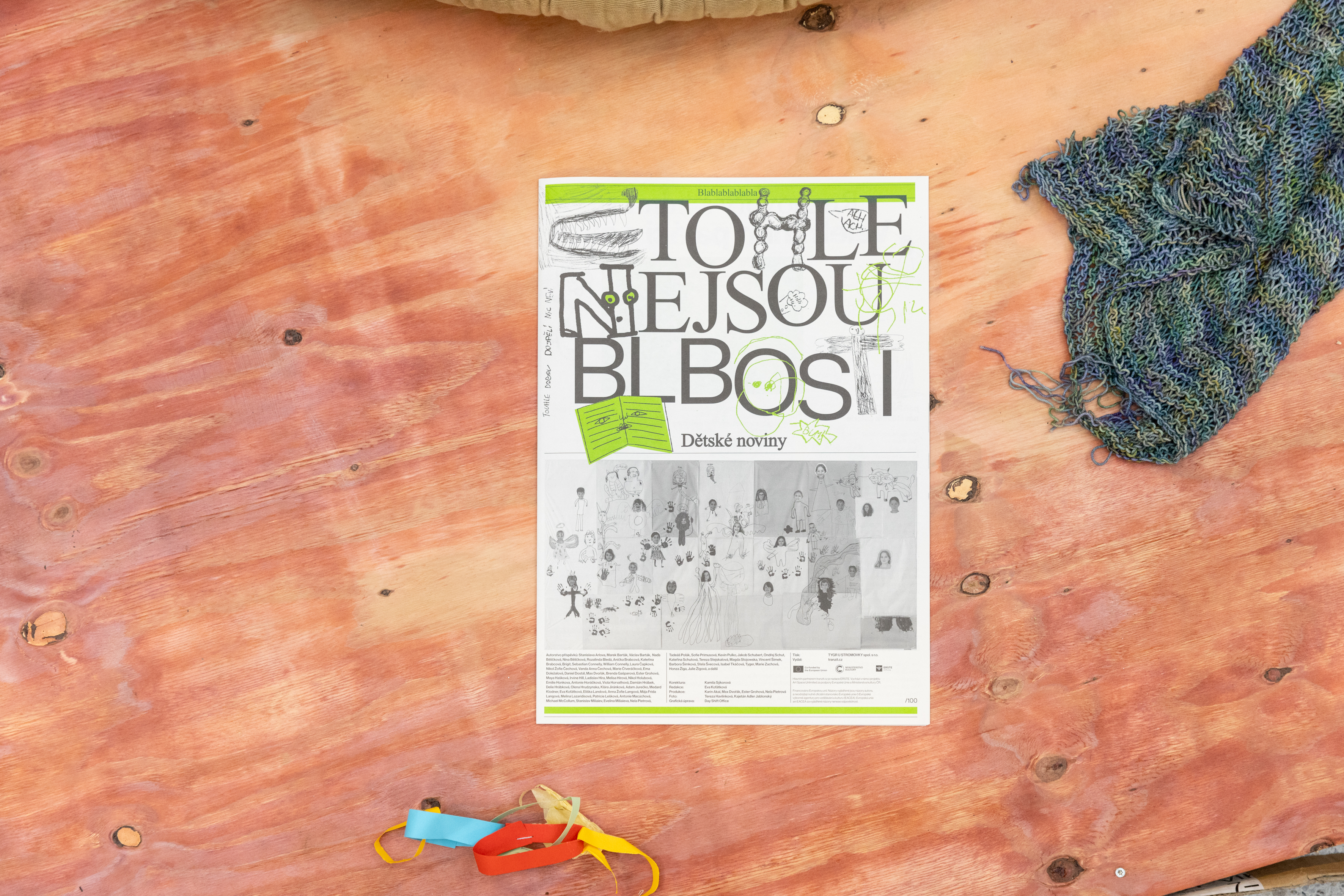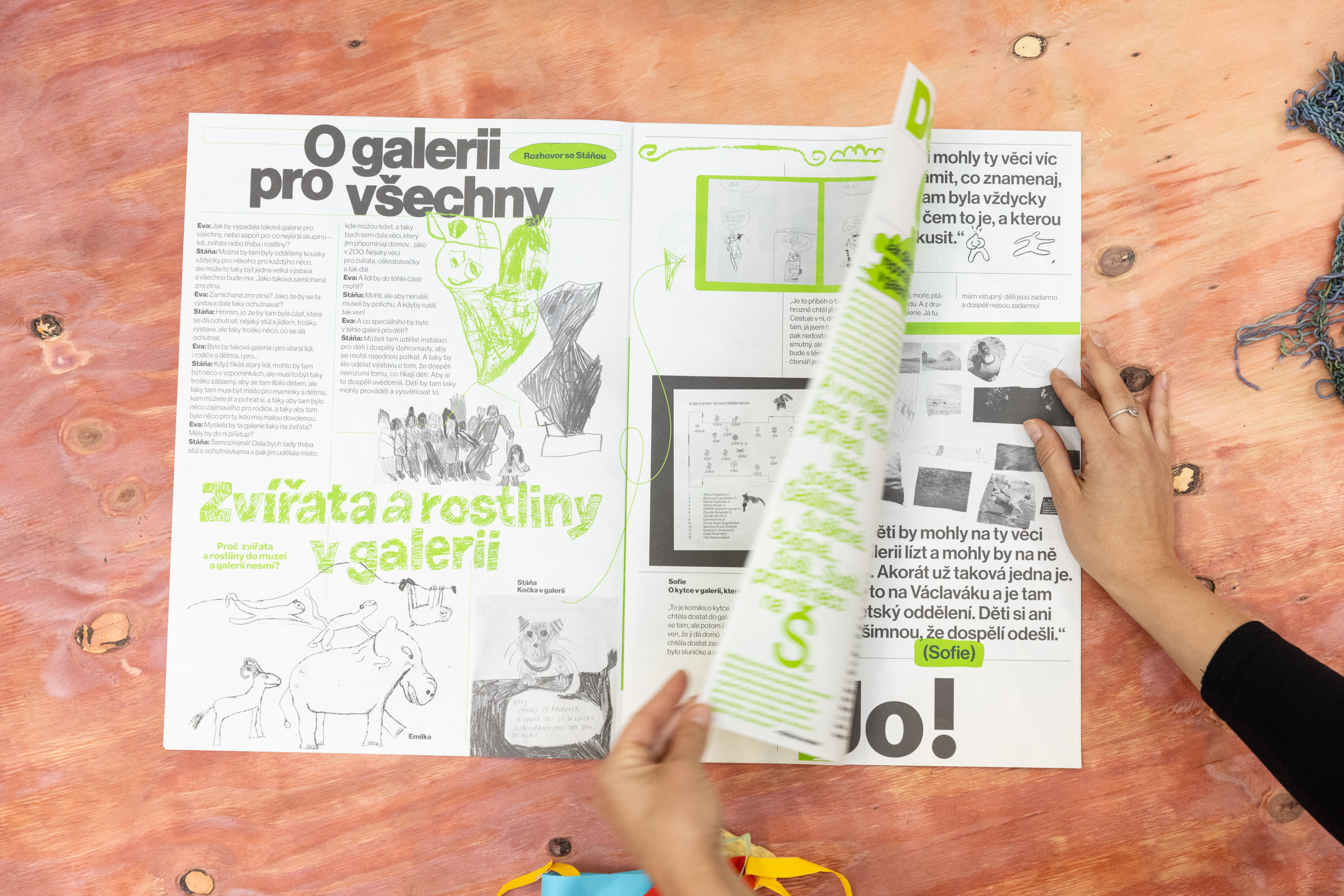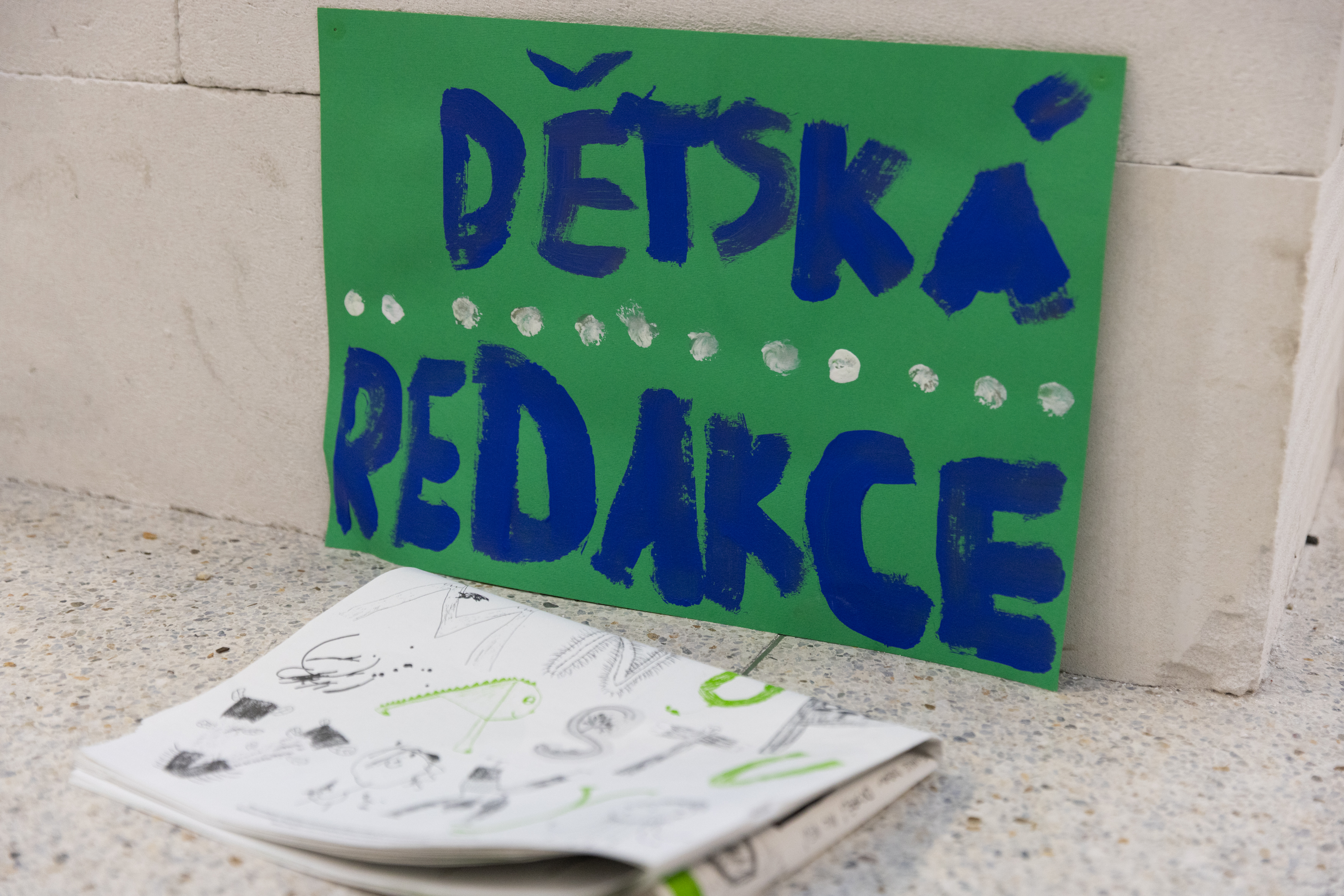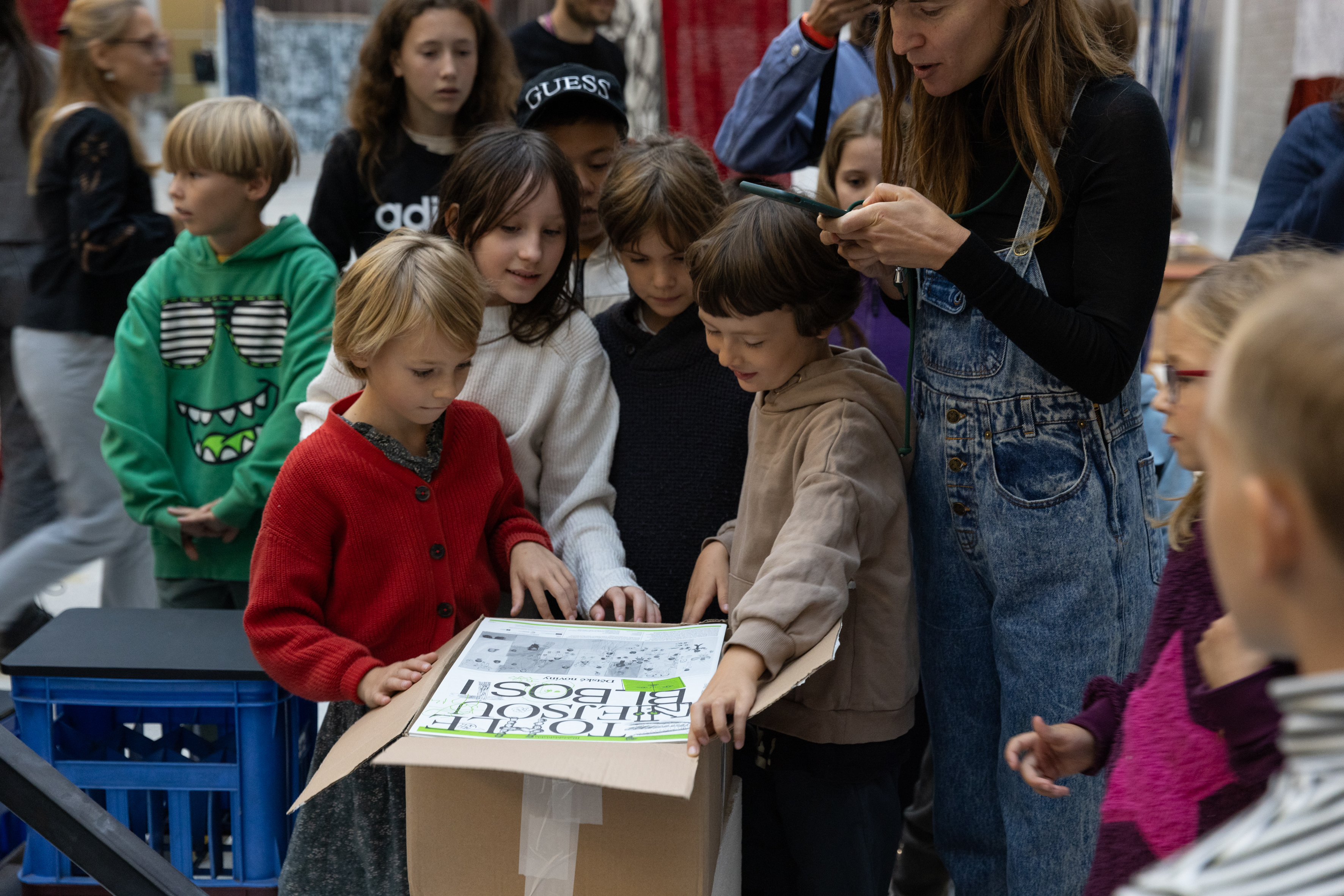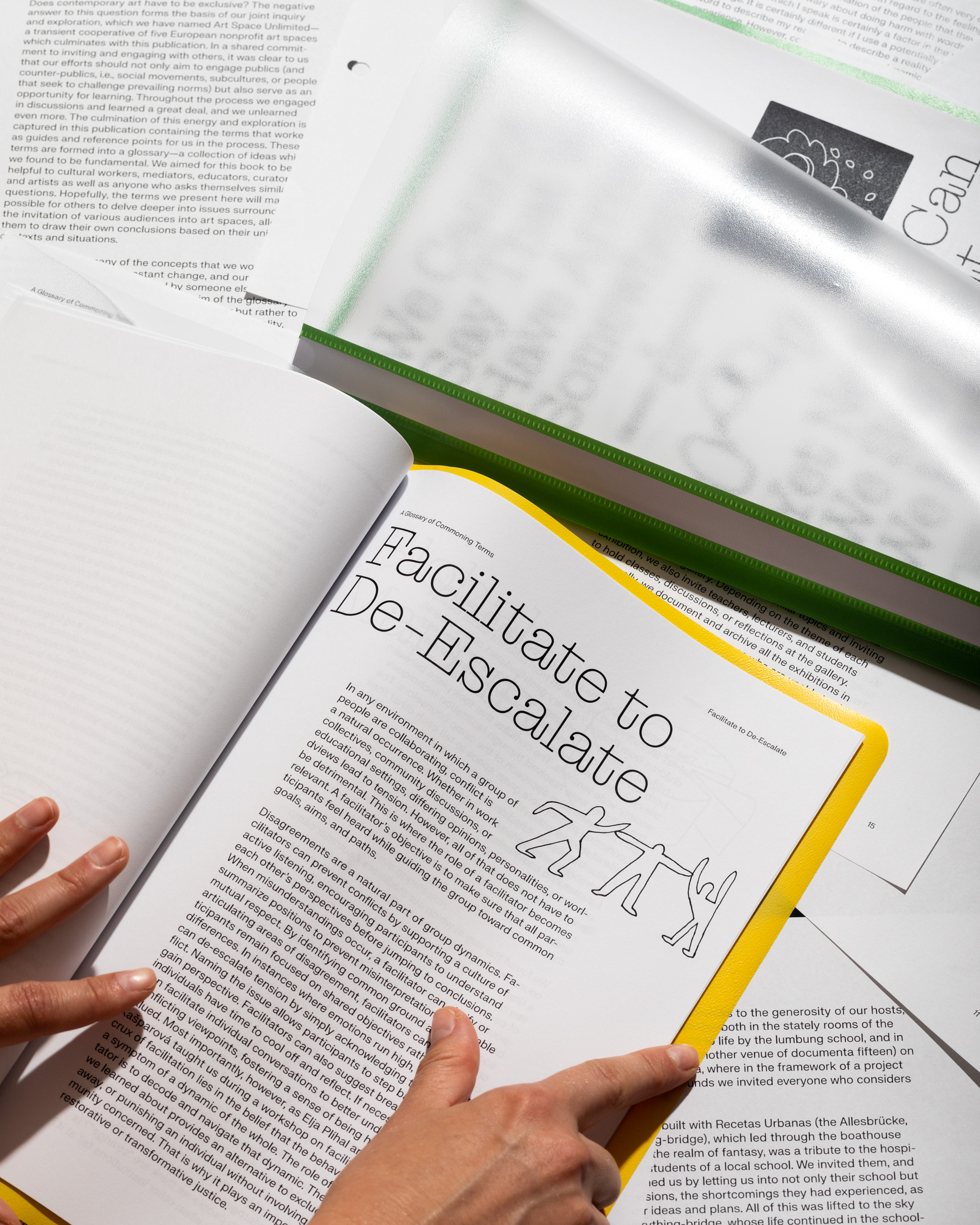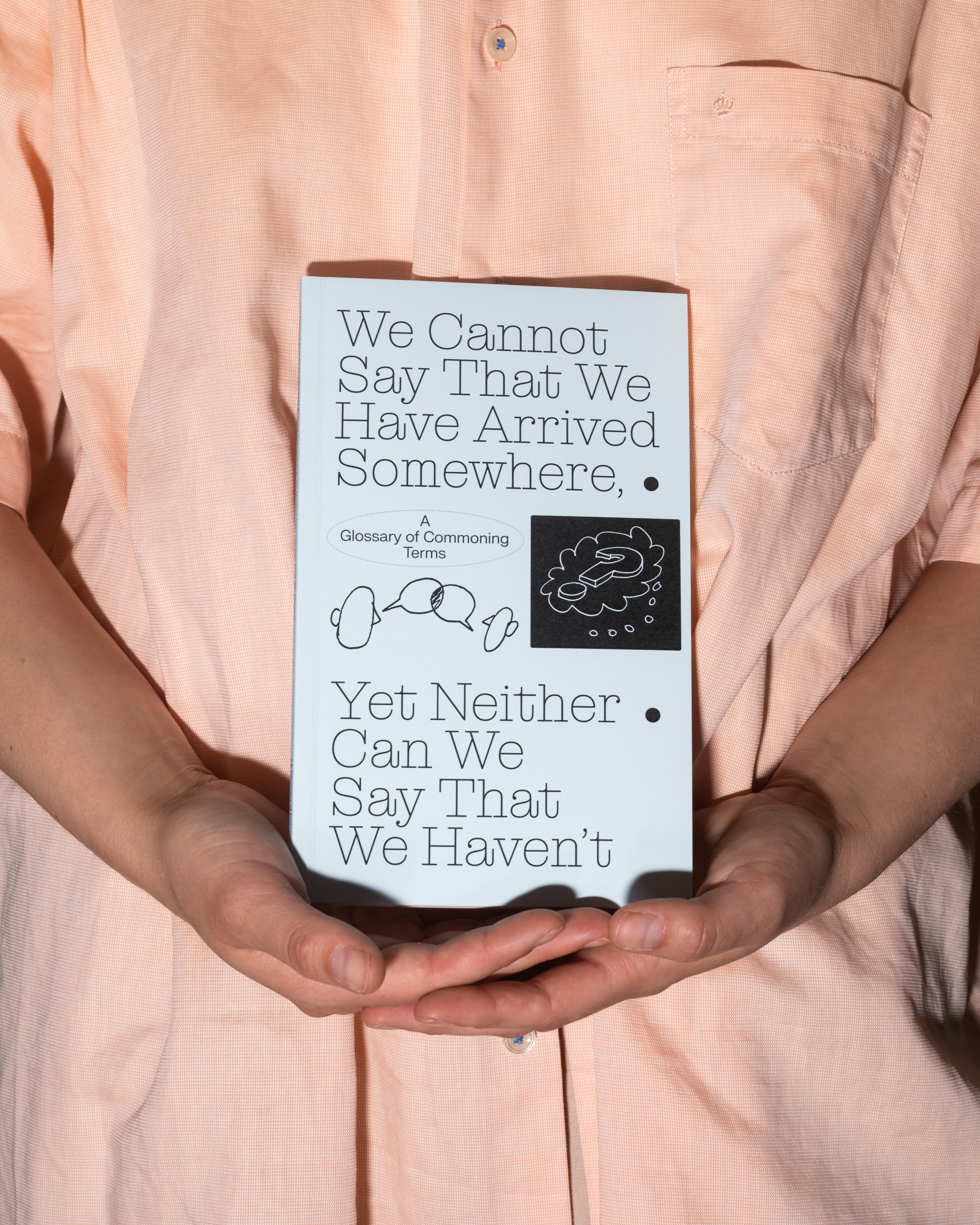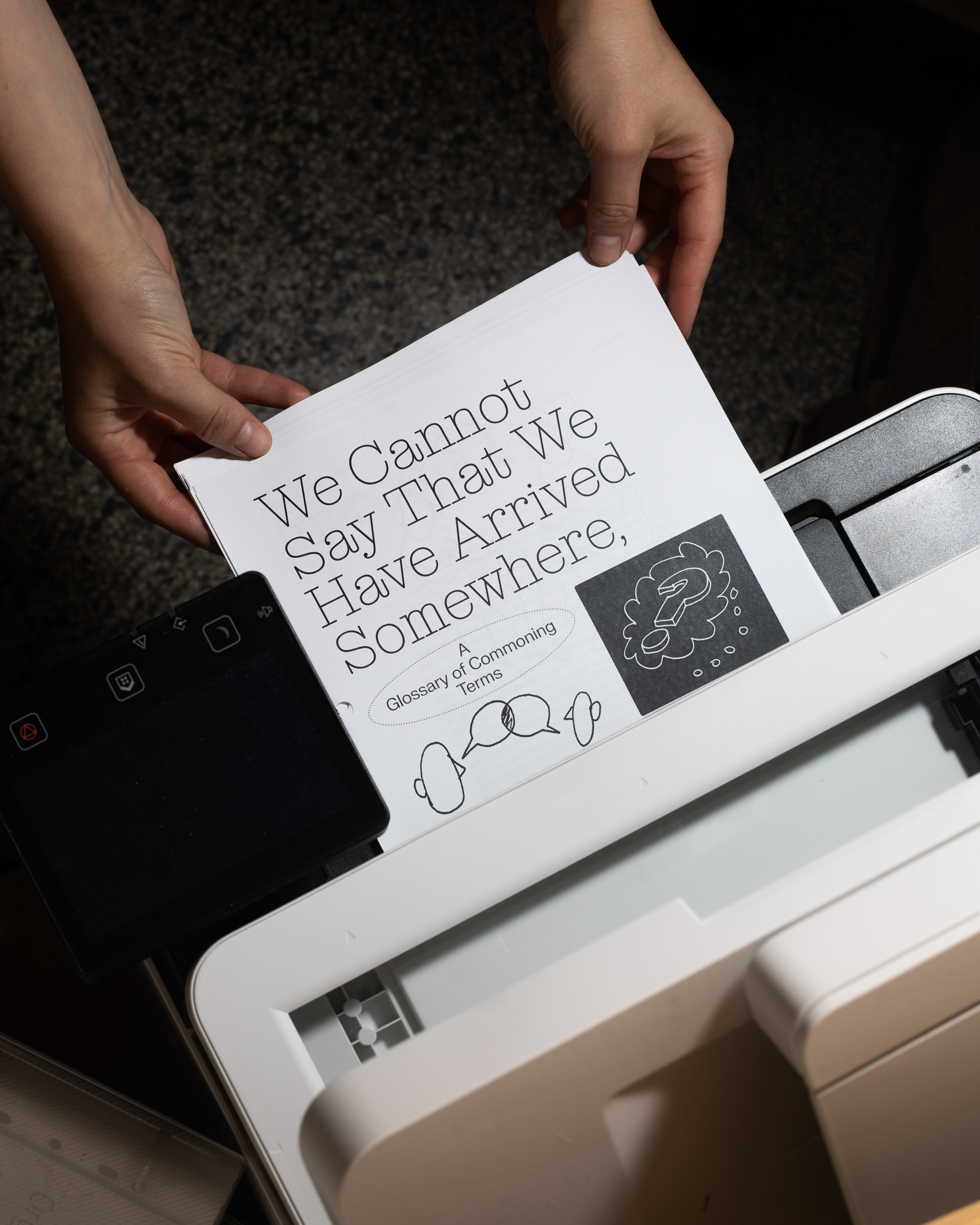Art Space Unlimited
Resilient communities at the forefront of contemporary art institutions
Art Space (Un)limited – Project seminar and debate, July 17, Centre for Contemporary Arts Prague (c) Tereza Havlínková
Five European non-profit art organizations have teamed up to learn from each other and find new ways to open up to audiences with limited access to institutionalized culture. Initiated by La Escocesa (Barcelona, Spain), OFF-Biennale Budapest (Hungary), < rotor > (Graz, Austria), Shtatëmbëdhjetë / Foundation 17 (Pristina, Kosovo), and tranzit.cz / Biennale Matter of Art (Prague, Czech Republic), the project Art Space Unlimited builds upon the individual artistic and educational efforts of these institutions, providing space for local communities to gain resilience through participation in politically engaged exhibition programming and residencies. The art spaces involved will build shared knowledge and organize public events centered around the mediation of art. The project will help these institutions to become spaces relevant for an audience with limited access to institutionalized contemporary art and develop strategies which will be relevant across Europe. The project will culminate in a book that will be made available to cultural organizers and curators in six languages.
Art Space Unlimited meeting, Centre for Contemporary Arts Prague (c) Tereza Havlínková
While shaped by their local cultures, languages, and cultural policies, each of the five organizations employs different formats and strategies to engage with audiences as well as artists and the professional public, ranging from year-long exhibition programs and discursive events to concentrated biennial exhibitions to regular artistic residencies. The activities planned will allow them to expand their regular programming, helping the institutions to develop mediation programs based on empathy, participation, and mutual understanding.
EVENTS AND ACTIVITIES
Art Space (Un)limited: Seminar and debate on accessibility in art
Mediation: The Great Land of Small Workshop #1 — creative program for children aged 9–14
Mediation: The Great Land of Small Workshop #2 — creative program for children aged 9–14
Mediation: The Great Land of Small Workshop #3 — creative program for children aged 9–14
This is not baloney: Launch of children's newspaper
Archive
The Great Land of Small
The children's suburban camp The Great Land of Small was a three-part series (July 18, August 29, September 15, 2024) of creative workshops for children aged 9 to 14 that aimed to help children find a distinctive way to think about art and exhibitions, find confidence in expressing their own opinions, and discover ways to influence the world around them. Admission was free of charge.
Building on the themes of the biennale exhibition Matter of Art 2024, children experimented with various ways to capture and share their thoughts, opinions, dreams, and ideas – from audio recordings to newspaper contributions to drawings. Participants were be guided through the project by artist Eva Koťátková, artist and member of the Mothers Artlovers collective Bára Šimková, DJ, musician, and journalist Mary C, theater director and dramaturg Magda Stojowska, and poet, educator, and illustrator Tadeáš Polák.
© Tereza Havlínková
Children's newspaper
The newspaper Tohle nejsou blbosti (This is not baloney) is the result of the intensive work of the children's editorial team, which met from July to September 2024. The interviews and drawings were created in Prague during the suburban camp and workshops The Great Land of Small at the Trade Fair Palace, nearby and in the Old Town, as part of the exhibition project of the Biennale Matter of Art 2024.
Children’s newspapers give a voice to those we often think we know well and feel the need to control. They disrupt traditional hierarchies about who should listen to whom and who should learn from whom and whether the only goal for a child should be to become a normalized adult as soon as possible. They suggest that we should listen to children, take their suggestions, visions, and feelings seriously, and not artificially isolate them from the problems and challenges of the contemporary world – because we can only face them together. Recommended for children and adults.
The launch of the children's newspaper Tohle nejsou blbosti (This is not baloney) © Tereza Havlínková
Glossary
The publication We Cannot Say That We Have Arrived Somewhere, Yet Neither Can We Say That We Haven’t: A Glossary of Commoning Terms is the result of the collective work of five European not-for-profit art spaces and captures their efforts to increase the permeability of their program for people with different needs. These efforts are linked by anti-ableism, empathy, and patience and show the multiple ways in which art and culture can move toward solidarity, understanding, interpersonal connections, and a gentle and understanding way of building community. The glossary is written in accessible language and is intended primarily for cultural workers who want to develop a responsive and mindful public program in not-for-profit organizations such as art galleries, artist-in-residence programs, community centers, artist-run spaces, interdisciplinary venues, and so on.
The views and insights in this book are place- and time-specific—they reflect activities held in Barcelona (Spain), Budapest (Hungary), Graz (Austria), Prishtina (Kosovo), and Prague (Czech Republic) in the years 2024 and 2025. The book was published in 2025 in six languages (Albanian, English, Czech, Hungarian, German, and Spanish), and its further use is possible under the Creative Commons license. The texts can be viewed directly on the website www.emotional-labor.eu, and all six language versions are also available as a free download in a print-at-home version or as an e-book (for e-readers such as Kindle).
We Cannot Say That We Have Arrived Somewhere, Yet Neither Can We Say That We Haven’t: A Glossary of Commoning Terms © Jonáš Verešpej
This activity is a part of the project Art Space Unlimited co-funded by the European Union. Views and opinions expressed are however those of the author(s) only and do not necessarily reflect those of the European Union or the EACEA. Neither the European Union nor the EACEA can be held responsible for them.
